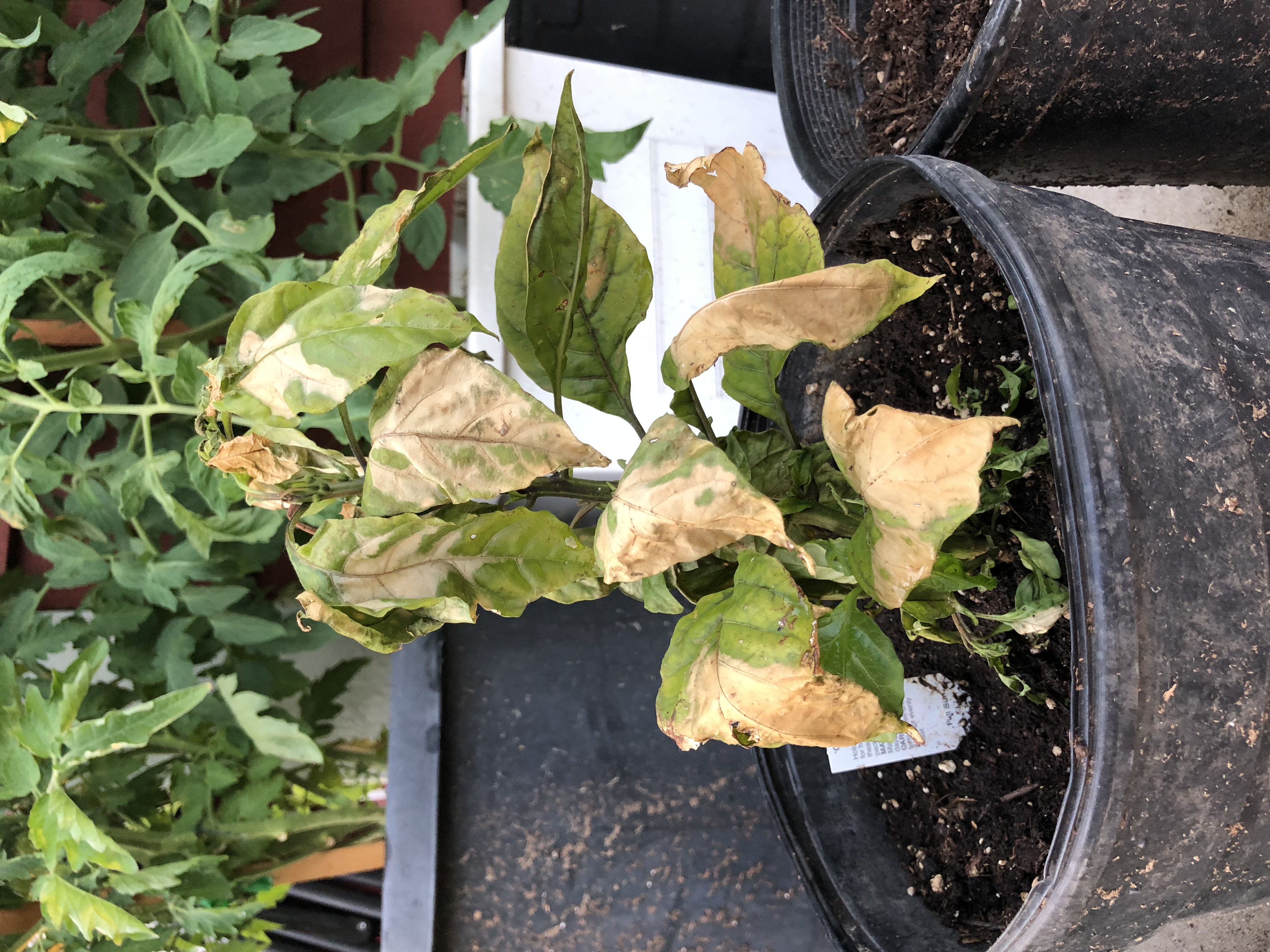Check Out the Best Fertilizers for Peppers and Enhance Your Garden's Yield
Check Out the Best Fertilizers for Peppers and Enhance Your Garden's Yield
Blog Article
Organic Vs. Synthetic Fertilizers: Which Is Best for Supporting Healthy Pepper Plants?
In the world of supporting healthy pepper plants, the option between synthetic and organic plant foods stands as a crucial choice with significant ramifications. While both options purpose to offer crucial nutrients to support plant development, the nuances of their influence on the dirt, plant health and wellness, and the atmosphere spark a discussion that echoes throughout the gardening neighborhood. Recognizing the unique advantages and potential mistakes of each fertilizer type is critical for pepper growers seeking to optimize their returns while maintaining a sustainable and eco-conscious approach.
Advantages of Organic Fertilizers
Organic plant foods offer a lasting and environmentally-friendly strategy to beneficial pepper plants, giving important nutrients without the use of synthetic chemicals. These all-natural plant foods are originated from organic sources such as compost, manure, bone meal, and seaweed, promoting dirt wellness and biodiversity. Unlike synthetic plant foods, natural alternatives launch nutrients slowly, making certain a stable and well balanced supply for pepper plants to prosper.
One considerable advantage of natural fertilizers is their ability to improve dirt framework and water retention. By improving soil wellness, natural plant foods advertise advantageous microbial activity, which helps in nutrient uptake by pepper plants. Additionally, organic plant foods lower the risk of chemical run-off, securing water sources from contamination and safeguarding the setting.
Furthermore, natural plant foods add to long-lasting soil fertility by advertising the growth of valuable soil organisms. These microorganisms assist break down natural matter, releasing nutrients in a form that is quickly accessible to pepper plants. best fertilizers for peppers. By fostering a healthy soil ecological community, natural plant foods support sustainable pepper growing methods that profit both plants and the environment
Downsides of Artificial Fertilizers
Artificial plant foods, in comparison to their organic equivalents, pose numerous negative aspects when made use of to nourish pepper plants, influencing both plant health and environmental sustainability. One significant downside of artificial fertilizers is their propensity to leach nutrients from the soil quickly.
Furthermore, the overuse of synthetic fertilizers can add to water pollution. Excess plant foods not taken in by plants can wash away right into water bodies, causing eutrophication, where algae flowers diminish oxygen degrees in the water, damaging water life. Artificial fertilizers are commonly acquired from non-renewable resources, such as fossil fuels, adding to carbon emissions and ecological deterioration during their manufacturing.
Nutrient Absorption Contrast
Effective nutrient absorption plays a vital role in the total wellness and development of pepper plants. When contrasting natural and synthetic plant foods in terms of nutrient absorption, organic fertilizers have the advantage of supplying a much more well balanced and slow-release source of nutrients (best fertilizers for peppers). Organic plant foods include a variety of macro and micronutrients that are not just beneficial for the plants however also advertise healthy and balanced soil microbial activity, which helps in nutrient uptake. On the various other hand, artificial fertilizers frequently supply a fast release of nutrients, which can bring about leaching and drainage, resulting in lower nutrient absorption rates by the plants.
Moreover, natural fertilizers improve dirt structure and water retention capability, enabling pepper plants to access nutrients more successfully. This improved dirt top quality helps with origin development, allowing better nutrient absorption. Artificial plant foods, although at first improving plant development as a result of their high nutrient concentrations, may prevent long-lasting nutrient absorption by degrading dirt wellness gradually.
Ecological Impact Considerations

On the various other hand, synthetic plant foods, although often more instantly available and concentrated to plants, can have detrimental effects on the environment if not applied effectively (best fertilizers for peppers). Their production calls for high energy inputs, causing greenhouse gas emissions and contributing to climate change. The overflow of excess synthetic fertilizers can contaminate water sources, leading to eutrophication and harming water environments.
Ideal Plant Food Practices for Peppers
When fertilizing pepper plants, optimizing nutrient uptake and minimizing environmental impact are vital factors to helpful resources consider. To attain this, it is vital to comply with best fertilizer techniques tailored to the particular demands of pepper plants. One crucial method is to carry out a soil test prior to using any kind of fertilizers. This examination can determine the pH level of the soil and recognize any kind of nutrient deficiencies, guiding you in choosing one of the most appropriate fertilizer formulation.
An additional important technique is to fertilize pepper plants at the appropriate time. Typically, peppers gain from getting fertilizer at growing and after that once more when they begin to blossom. Over-fertilizing can bring about nutrient discrepancies and hurt the plants, so it is vital to follow suggested application rates.
In addition, picking a well balanced fertilizer with an NPK ratio that suits pepper plants' needs is fundamental. Organic fertilizers, such as garden compost or manure, can be exceptional selections as they launch nutrients gradually and improve soil structure in time. Artificial fertilizers can give a fast nutrient increase when needed. Inevitably, combining natural and artificial plant foods judiciously can assist nurture healthy pepper plants while lessening ecological effect.
Verdict
:strip_icc()/BHG-Growing-Peppers-Indoors-EzgaEnB7KML9Ym_plkvuxK-9398f1341d86483083862533ae7622db.jpg)
Organic plant foods provide an environmentally-friendly and sustainable approach to beneficial pepper plants, giving vital nutrients without the use of synthetic chemicals. Unlike artificial fertilizers, natural alternatives release nutrients slowly, making sure a constant and balanced supply for pepper plants to flourish.
Artificial fertilizers, in contrast to their natural counterparts, pose various drawbacks when used to nourish pepper plants, affecting both plant wellness and ecological sustainability. When comparing artificial and natural Learn More fertilizers in terms of nutrient absorption, organic fertilizers have the benefit of providing an extra well balanced and slow-release resource of nutrients.Furthermore, natural plant foods improve dirt structure and water retention capability, allowing pepper plants to access nutrients much more effectively.
Report this page